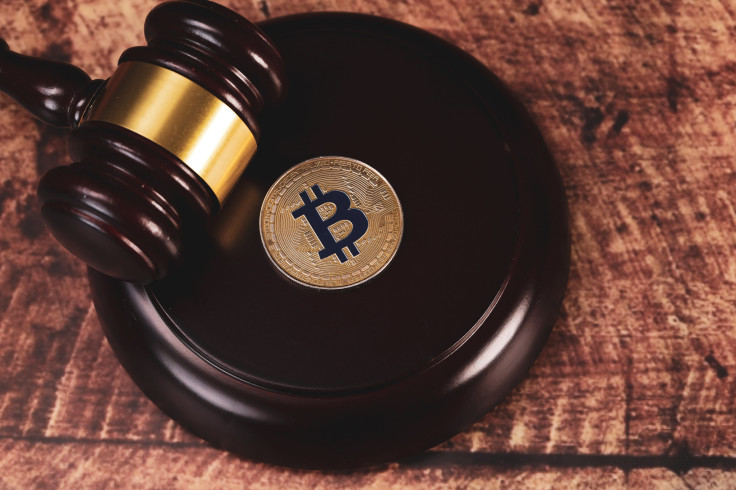EXCLUSIVE: Bitpace CEO Talks About The State Of Global Crypto Regulation

KEY POINTS
- The IMF previously warned of growing concern over the lack of a global regulatory framework
- Europe-based crypto firms see MiCA as an 'opportunity for Europe to emerge as a leader in crypto asset regulation': Bitpace CEO Anil Oncu
- The UK's new bill seeking to recognize crypto as personal property can help legitimize the industry, he said
- Lawmakers should focus on delivering 'future-facing' policies for a fast-evolving industry: Oncu
In an industry that relies largely on the trust and confidence of users who have opened their minds to a new digital economy powered by blockchain and cryptocurrency, regulations remain uncertain, and the uncertainty has had a significant impact on broader adoption.
A 2023 report by multinational consultancy network PwC highlighted the importance of clear rules for digital assets. For crypto firms, clear regulations should help them align their business practices with the law, and for traditional financial institutions, regulations can provide them the much-needed clarity to enter the space.
In an exclusive with International Business Times, Anil Oncu, the CEO and co-founder of crypto payment gateway platform Bitpace, discussed the global regulatory environment and underscored the urgency for clear and transparent rules specifically dedicated to a burgeoning industry that has apparent potential to transform the technological age.

Is a Global Regulatory Framework Possible?
One of the pain points of regulation in recent years is the debate on what a global regulatory framework can do for the digital assets space. But first, is it even possible to achieve at this point?
The International Monetary Fund (IMF) said in 2022 that there is growing "worry" that the longer the world doesn't come up with a regulatory framework, "the more national authorities will get locked into differing regulatory frameworks."
For Oncu, an international regulatory framework might differ from what most expect. "With no unanimously recognized international governing body, there will be no global 'laws' that control wallets or purchases," he noted.
Notably, the world has the Financial Stability Board (FSB), which monitors the global financial system and provides recommendations. However, it is not an international governing body that can actually roll out and implement regulatory guidelines.
"The goal is to encourage jurisdiction-specific approaches that match each country's unique needs. This is why 'first mover' policies often serve as a blueprint for future approaches. Think GDPR (General Data Protection Regulation) and the data privacy standards that followed in its footsteps," Oncu said.
The GDPR is the European Union's legal framework for collecting and processing personal information, having the most stringent guidelines on privacy and security.
As was the case with GDPR, the EU is also leading the way in the race toward establishing clearer rules for crypto companies as the first phase of its Markets in Crypto Assets Regulation (MiCA) came into effect this year.
MiCA Not as an Innovation Blocker but an Opportunity
When the bloc first unveiled details of MiCA, there was initial outcry in the international community, especially non-EU-based companies that only expanded in the area. However, things have since changed and a growing number of crypto platforms and companies have been working toward MiCA compliance.
Oncu revealed that within the EU, MiCA has been widely accepted. "Complying with this regulation is nothing new or outlanding for any financial business in the region. For example, at Bitpace, achieving MiCA compliance early on was a natural evolution for our accreditation," he said.
He went on to note that many crypto firms within the bloc "see MiCA as an opportunity for Europe to emerge as a leader in crypto asset regulation." He cited how Circle became one of the first providers to achieve MiCA clearance, allowing the P2P payments firm to unveil the EURC stablecoin.
"This is the kind of progress regulation aims to foster, and it can set the stage for similar regulatory efforts worldwide," he said.
UK Moves Toward Clarifying Crypto's Legal Status
Following in the EU's footsteps is the United Kingdom, which, just this month, introduced a new bill that seeks to recognize Bitcoin and other cryptocurrencies as personal property. If the Property (Digital Assets etc.) Bill is passed into law, it will give digital asset holders expanded legal protection against frauds and scams.
The cynicism among non-crypto natives stems from security breaches and other instances in the sector that have raised fear of uncertainty, such as the collapse of Sam Bankman-Fried's FTX.
For Oncu, the UK's new bill can help legitimize the industry. It will also make crypto investments more attractive to retail and institutional users alike, since such recognition adds another layer of security.
While some may view any new regulation as a form of government interference, Oncu believes that Britain is "likely aiming for a mutually beneficial legal environment where crypto adoption can progress without risking individual privacy or financial security."
Is the US Getting Left Behind?
While the EU continues to work toward providing clearer regulations for the emerging sector, things are much different in the United States – once the leader in many segments of technology.
Lawmakers have only recently displayed more urgency in working toward passing and drawing up laws that seek to establish clear rules for the booming industry.
"The U.S. is following a different path to implementing crypto legislation, partially due to its governmental system," said Oncu, who has over two decades of experience in digital product management. He noted that part of the reasons why some initiatives toward crypto regulatory clarity is in limbo is due to the upcoming presidential election.
He also said the regulatory environment is more complex in the United States due to some state regulations that could play a major role in the legal status of digital assets. Still, Oncu doesn't think the U.S. is getting left behind.
"Several other countries are still in the early stages of regulatory discussions. A thoughtful approach considering industry actors' input and other countries' approaches will benefit longevity over a rushed, sweeping procedure," he said.
A Fast-Evolving Industry amid Slow-Moving Clarity
The crypto and blockchain industry has been growing at an unprecedented rate. Sub-segments are emerging and gaining traction in the broader blockchain space, including SocialFi (social finance), PolitiFi (political finance), and StreamFi (streaming finance).
In an industry that has seen massive growth and development in the past years, clarity over compliant business practices is scant. Will regulations ever catch up to a fast-evolving sector?
Oncu noted that while crypto has been expanding, it remains nascent in many ways. "The goal is not to be in a constant cycle of catching up to innovation but rather, implement future-facing policies that address the foundations of distributed ledger technologies (DLT)," he said.
To deliver future-facing policies for an industry seeking compliance under clear and transparent rules, Oncu recommends careful collaboration between industry stakeholders, government policymakers, and technology users.
© Copyright IBTimes 2024. All rights reserved.






















